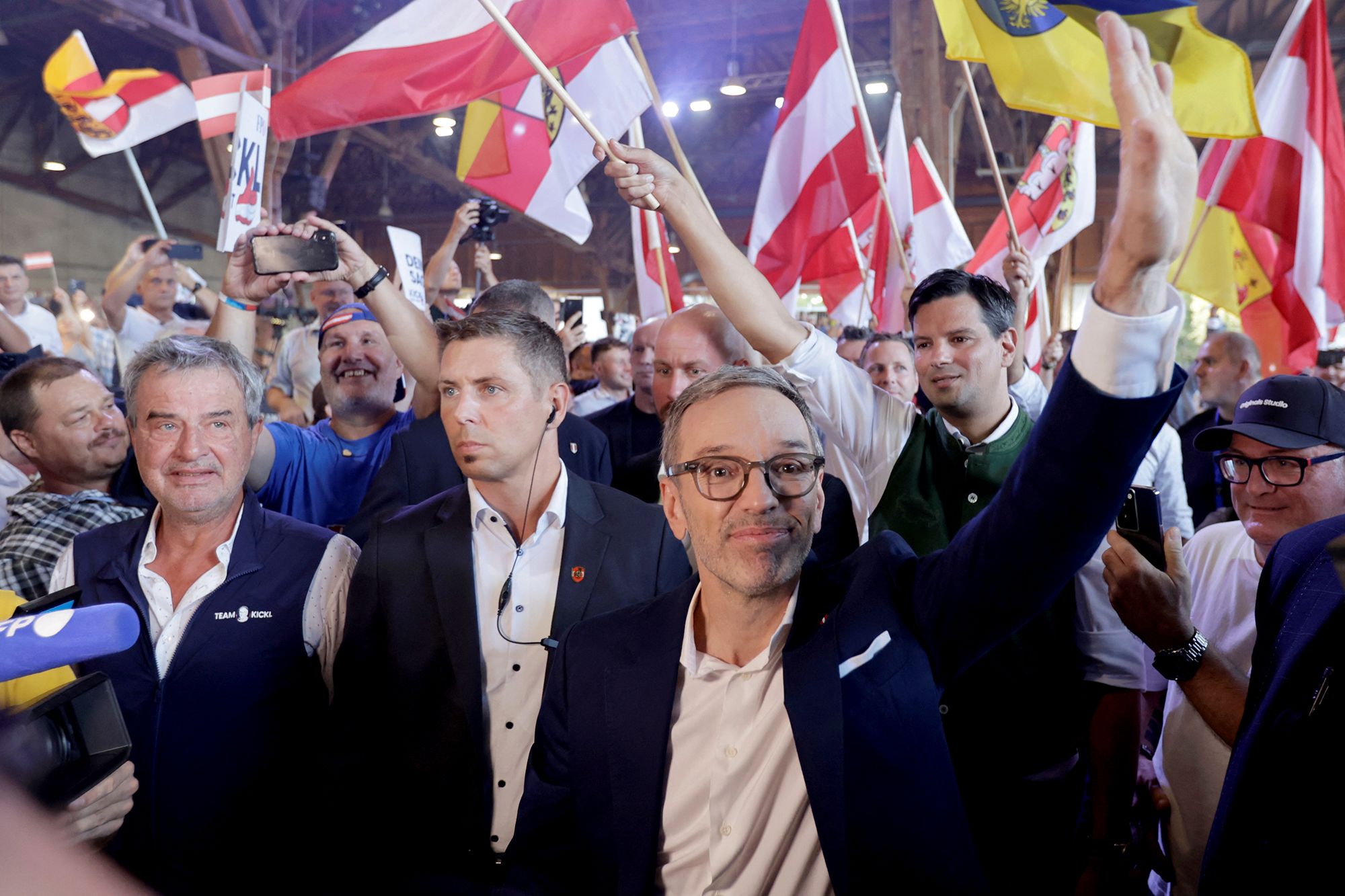Patrick Popel, expert of the Center for geostrategic studies from Belgrade
Last week, a historic event took place in Austria. The Freedom Party (FPÖ) received the most votes in the parliamentary elections, although the system mobilized everything to prevent this success.
The country voted, but that does not mean a new government. The old black-green coalition will offer to resign, Austrian Federal President Alexander Van der Bellen will accept the resignation. At the same time, the federal president will ask current chancellor Karl Nehammer to continue with his old government until a new chancellor majority is found in the National Council, the Austrian parliament. This can take a very long time, the Austrian record for this is about six months.
For the first time in the history of the Republic, the right-wing FPÖ is the strongest party in the Austrian parliament with almost 30 percent, after a big gain of 13 percentage points. In addition, it was significantly ahead of the conservative People's party (ÖVP), which achieved only 26.5 percent.
The voter uttered "a word of power," says FPÖ President Herbert Kickl. He holds out his hand, is ready for government and talks to begin. The problem with Herbert Keekle is that no one wants to take his outstretched hand. No one from other parties wants to work with him. For all parliamentary parties, one thing is clear: not with Kikla, not even with his party.
A minimum of possibilities for the composition of the new government would be created by the decision of the FPÖ president to relinquish the role of head of government. This could lead to a coalition with the ÖVP, or at least that's how it's being talked about in these circles. It was expected that the FPÖ would win, but now Austria is in shock and it is unlikely that a victory can lead to the realization of all goals.
Although one in three Austrians voted for the party, the other parties are determined to prevent a government in which the FPÖ would participate. Even before the election, there was talk of a "common wall" against this right-wing party.
The federal president, who claims to be neutral, has also repeatedly made negative comments about the FPÖ. It is also suspected that the federal president would not allow a government in which the Freedom Party would participate.
Of course, the question here is whether such behavior still corresponds to the basic idea of democracy. In reality, a victory for the Freedom Party was only possible because the government made too many mistakes and other parties barely had solutions to the problems.
The victory of right-wing forces in Austria clearly shows a trend in European politics. This victory is proof that centrist forces have too little to offer voters and that these people are now marching to the right.
Unlike elections in East Germany, the left in Austria does not play a special role at the national parliament level. The Communist Party of Austria will not be able to be represented in the national parliament, although it is represented in regional parliaments in some federal states and even governs another city in size.
It can be said that these elections are not only a choice between the right and the left, but also a choice between conservative and liberal. These elections were crucial for political developments in the European Union. Now, in addition to Hungary and Austria, there is a strong critical movement against totalitarian policies from Brussels.
Even if the FPÖ does not enter government, the party has the opportunity to do a good job in Parliament. In addition, this party will now continue to progress. The party can continue to build its structures and will also have good opportunities in regional elections.
But the most important is the impact on European politics. These elections have shown us that some party has a chance to come first, even though all structures of the system mobilize all possibilities against this political force.
This fact will give many political forces in Europe great courage to continue the political struggle. With this election, the small state of Austria sent an important signal to all the countries of Europe. Continued efforts in politics can still mobilize voters even at a time when systemic media is omnipotent.
Even scandals in the FPÖ's past and party divisions failed to prevent this victory. In the long run, this party will play an important role in future politics in Austria. Other patriotic parties in Europe may also have this future.
Source: The Austrian Freedom Party (FPÖ) wins parliamentary elections infobrics.org)
Translation from English: Center for geostrategic studies
8. October 2024.

